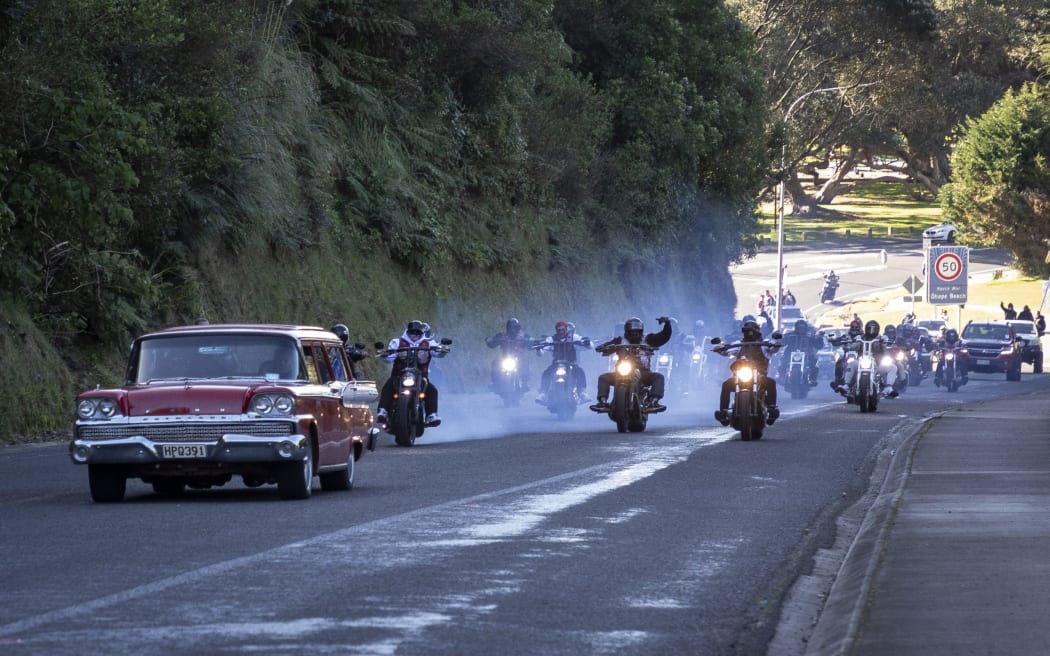By rnz.co.nz
New laws aimed at cracking down on gang activity were used for the first time yesterday following a funeral procession near Whakatāne for a slain Mongrel Mob boss, Justice Minister Kiri Allan says.

Hundreds of motorcyclists accompanied by utes disrupted traffic as they descended on the Bay of Plenty town on Wednesday for the funeral of Ōpōtiki Mongrel Mob Barbarians president Steven Taiatini.
Police today revealed Taiatini died after being hit by a vehicle in Ōpōtiki and a burned-out Holden Colorado 4×4 found on Waiotahe Valley Rd, was likely to have been involved. A homicide investigation has been launched.
Allan, who is also the East Coast MP, said it had been “heart-wrenching and devastating to witness things unfold” in her electorate.
“To have this level of disruption is really hard, acknowledging too the anguish and fear that was going through the town, especially in the early stages.”

Allan said she understood police had used new legislation that allowed them to obtain an urgent warrant if there were fears of gang conflict or if any kind of criminal activity was occurring.
A police operation in Ōpōtiki on Wednesday night resulted in firearms and weapons being seized, and eight gang-related vehicles stopped and searched. Firearms, ammunition and weapons were found in five.
Two people were charged for firearms offences and two were summoned to appear in court for possession of offensive weapons and drug-related charges.
Among other things, the Criminal Activity Intervention Legislation Bill, introduced in March, amended existing law to create new targeted warrants and additional search powers to find and seize weapons from gang members during a gang conflict and expanded the range of offences where police can seize and impound cars, motorbikes, and other vehicles.
It also created a new offence of discharging a gun with intent to intimidate and provides police with the ability to seize cash over $10,000 when found in suspicious circumstances.
Allan said the changes meant warrants could now be applied to geographical areas rather than needing to be applied to individuals.
The changes also provided more powers for penalising people firing a gun to intimidate, or in drive-by shootings, as well as in seizing bikes and cars that were being driven recklessly.
She said it was up to the police how it exercised those powers and the government was making sure police now had the tools it needed to prosecute.
She believed police were resourced well enough to deal with Wednesday’s activity in Whakatāne, which included out-of-town support. More than 100 police officers were involved.
“That has not been a concern from police, that they felt under-resourced.”
She was working with the community and police and ways to support police and the town and communities were at the forefront of her mind, she said.
“We’ve got to let the police do what they need to do, there are a range of operational decisions they need to make.
“It’s not a time to make big, grand political statements whilst there is a really live, ongoing issue.”
Police have been approached for comment.
Local Democracy Reporting is Public Interest Journalism funded through NZ On Air


